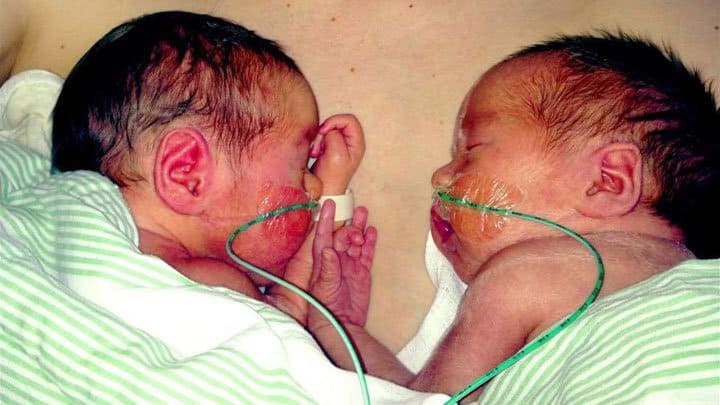Half of Providers Do Not Attend to Pregnant Women’s Concerns
A Twin to Twin Transfusion Syndrome study reveals that about half of women completing a TTTS pregnancy feel that their health care providers did not attend to their concerns during pregnancy. This study was published in the Journal of Patient Experience.* 386 women participated in the study. They were all living in the U.S. at the time of the study, and the majority were Caucasian. Most had gone to college and were married. Many of the women had private insurance during their pregnancy. Read more about Twin to Twin Transfusion Syndrome.
*The organization publishing the Journal of Patient Experience is the Association for Patient Experience. It is a nonprofit organization founded by Cleveland Clinic dedicated to improving and advancing the patient experience.
Average week for TTTS symptoms was 18+2 weeks
The study was published in November 2017. The 386 woman answered an online questionnaire about their TTTS pregnancy during 2016. They answered questions in relation to being diagnosed with TTTS, their treatment experiences, how they were feeling physically and emotionally during their pregnancies, and the course and outcome of their pregnancies. They also answered questions in relation to their relationship, support from friends and family, and how they perceived the care that they received. Almost half of the women indicated that they experienced symptoms prior to being diagnosed with TTTS. The average gestational week for experiencing symptoms were 18+2 weeks. However, it ranged from 6 to 33 weeks.
These are the most common TTTS symptoms
The most common symptoms were sudden weight gain, swelling and pain. 1 out of 5 women reported feeling like they had a tight stomach , rapid abdominal growth and measuring big. Of the women who experienced symptoms prior to being diagnosed with TTTS, 3 out of 4 shared these with their health-care provider, often an obstetrician. A little more than half of the women reported that they felt their healthcare provider did not attend to their concerns. A lot of the women were told that they were experiencing typical twin pregnancy symptoms and felt dismissed. The ones who were satisfied with their health care providers response received immediate ultrasound and/or were sent to see a maternal-fetal medicine (MFM) specialist. A Maternal-Fetal Medicine specialist is a doctor who helps take care of women having complicated or high-risk pregnancies.
TTTS symptoms mirror those of preeclampsia
The American researchers pointed to the fact that some of the TTTS symptoms mirror those of preeclampsia. Preeclampsia is characterized by high blood pressure and often a significant amount of protein in the urine as well as swelling of feet, legs and hands. If undiagnosed, preeclampsia can lead to eclampsia, a serious condition that can put the mother and her babies lives at risk. However, preeclampsia is rarely diagnosed before 20 weeks, and TTTS is often diagnosed earlier. The researchers recommend that due to the high risk nature of a mo-di pregnancy, health-care providers should inform pregnant women to be alert for and immediately report any of the symptoms described. The researchers also recommended that health-care providers investigate any concerns and physical complaints immediately.














